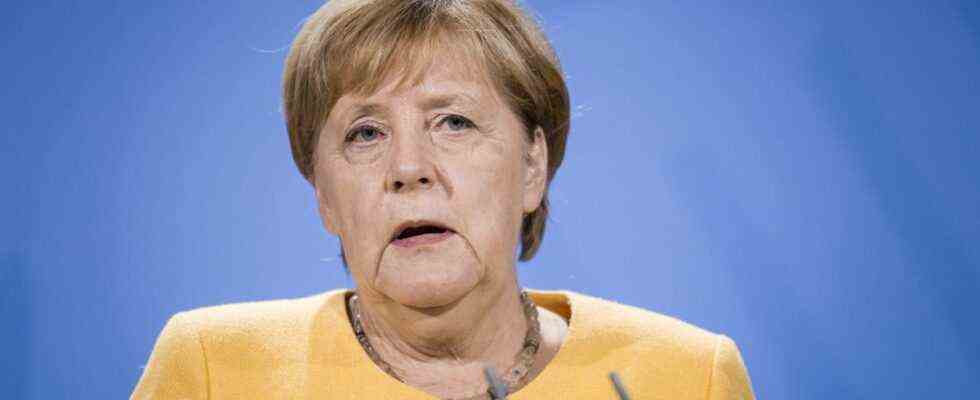The Chancellor chooses clear words. “Bitter, dramatic, terrible” are the Taliban’s advance in Afghanistan and its consequences. Angela Merkel speaks of the battered country, of the millions of people who would have bet on democracy. She also reminds of those soldiers who would have given their lives in action or were left with “scars on body and soul”. And yet Merkel’s appearance in the Chancellery on Monday evening seems quite sober, downright emphatically factual; the emotions that have been triggered by the images for hours have no real correspondence here.
There are calls for help and accusations on social media from Afghans who feel abandoned. Merkel says she wants to inform the public about “what we are doing to provide assistance to Afghan people seeking protection, and above all local staff”. At the airport in Kabul, flight operations have been stalling for most of the day, people storm the runway, cling to planes – Merkel says the conditions are “extremely difficult”.
Merkel’s Foreign Minister Heiko Maas began his statement about two hours earlier with an admission: There was nothing to gloss over, they had “misjudged the situation”. The Chancellor makes this her own, but only in a half-sentence, later when she answers questions. Otherwise, it does what it often does when the situation is difficult: it breaks the problem down into its individual parts.
Things have “accelerated”, says Merkel
The first thing to do is to “bring our compatriots to safety”. That means flying out the employees of the German embassy and German organizations in Afghanistan. Then the local staff: There are initially around 2500 Afghans, namely 500 people who have worked with the armed forces and police, as well as their families. Around 1900 of them are already in Germany or in safe third countries.
She also meant these local staff, Merkel said later when she announced at her summer press conference on July 22nd: “I want us to really offer a way out to those who have helped us a lot.” The assessment of the situation at the time was that there was still more time. Now “things have accelerated” and the Afghan army has not opposed the deployment of the Taliban. Merkel does not adopt the assessment that her announcement has already turned out to be an empty promise.
Now, Merkel continues, it is about employees who have worked in development aid. According to the responsible minister Gerd Müller (CSU), the total number is a little over 1000 people. The ministry contacted everyone. In addition, there would be around 500 employees from non-governmental organizations. A total of almost 600 people have reported so far. Now we will try, according to Merkel, “to do everything in our power to get these people out of the country”. In Kabul, one relies above all on the support of the Americans and Turks, says Merkel. Foreign Minister Heiko Maas had previously described that this is not only about protecting the airport, but also about the safety of the access routes. “As many people as possible” are wanted to get out of the country, says the Chancellor.
One lesson for the future is that the goals have to be “made smaller”
Angela Merkel did not initiate this mission, but supported it as opposition leader at the time. She later also took over from the then Defense Minister Peter Struck that Germany’s security would also be defended in the Hindu Kush. From the perspective of the time, this sentence was justified, said Merkel, because it meant the fight against terrorism. In the meantime, this position has been “put into perspective” because the terrorist organizations Al-Qaeda and Islamic State currently have no base in Afghanistan. “I consciously say: for the moment,” added Merkel.
It was in Merkel’s chancellorship that the mission began in Mali, where an army is also being trained. The Chancellor is asked whether she fears a similar development there as in Afghanistan. Merkel replied by pointing out a difference between the two commitments, which almost amounts to indirect blame: In Afghanistan, an independent role for European forces was not possible because one was always “elementary” dependent on the decisions of the American government. They have now withdrawn, with all the consequences.
In Mali, on the other hand, there is “a strong French contribution,” said the Chancellor. In addition, the goal of a political process in the West African state is much smaller than the claim to democratize Afghanistan. Everything that they wanted to achieve beyond the fight against terrorism, so Merkel’s conclusion, was “not as successful and not as achieved as we set out to do”. One lesson for the future is that the goals have to be “made smaller”.

